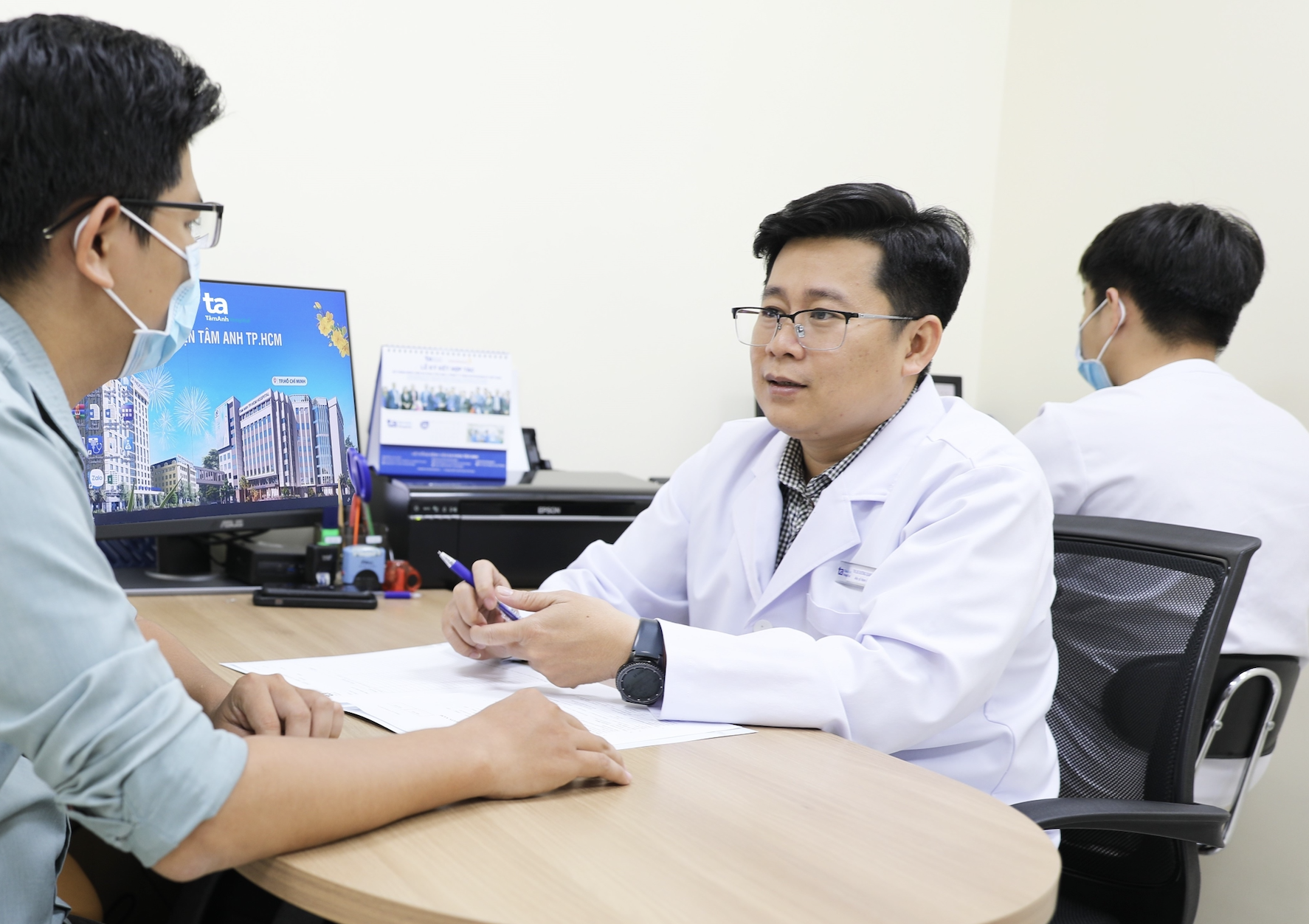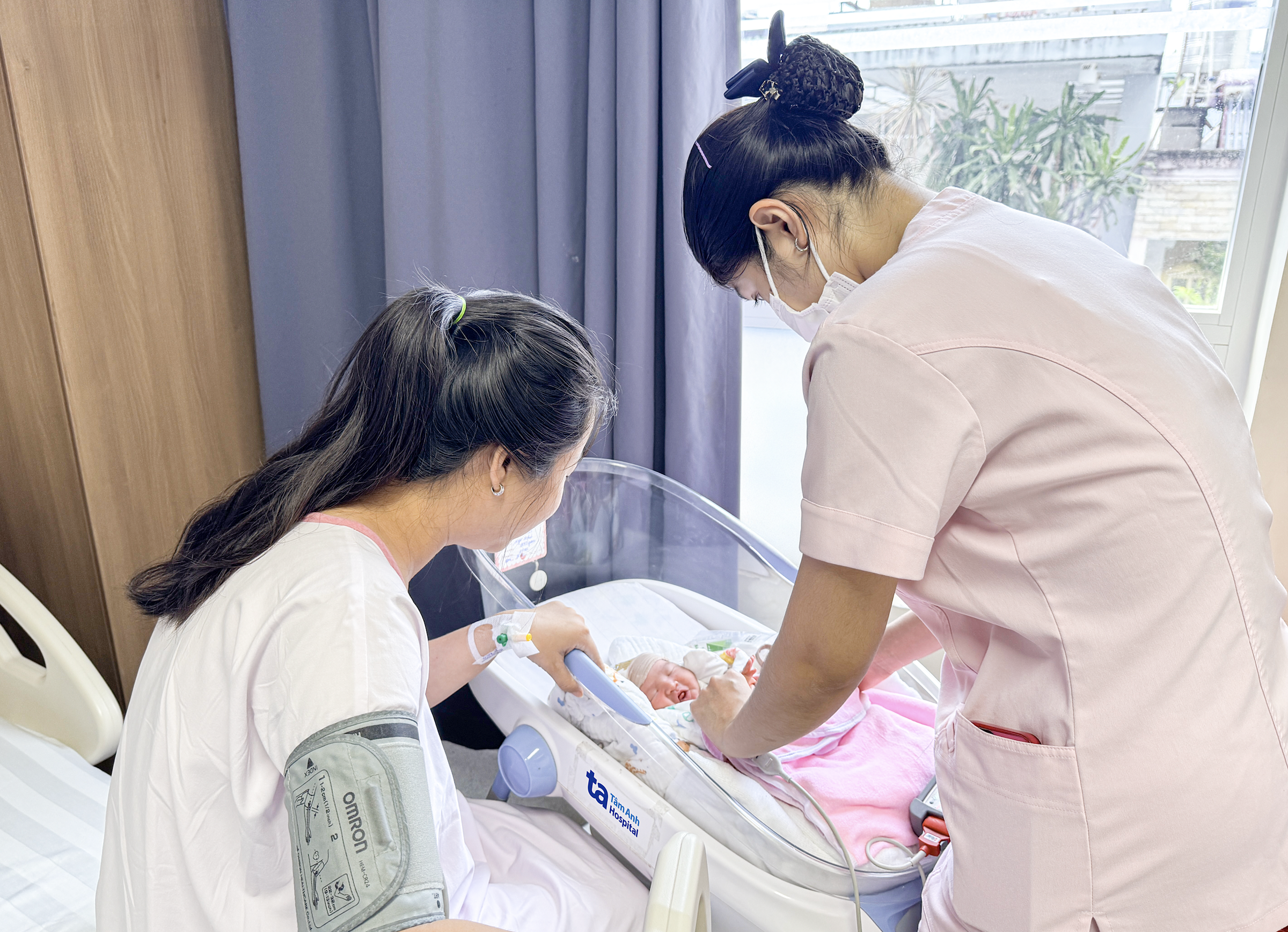Mr. Thang's semen analysis at the Fertility Center, Tam Anh General Hospital in TP HCM (IVF Tam Anh TP HCM), revealed deformed sperm lacking acrosomes. The acrosome is a small sac containing protein-digesting enzymes. Without it, sperm cannot penetrate the egg's protective layer, making natural conception impossible.
According to Dr. Duong Quang Huy, Head of Andrology, this is a relatively common issue in men. A certain percentage of deformed sperm is normal in the semen of healthy men. A normal rate is up to 4%, which still allows for conception. Cases like Mr. Thang's, where over 96% of sperm are deformed, can significantly affect fertility.
 |
Dr. Huy consults on a treatment plan for an infertile man. *Illustrative photo: Thanh Luan* |
Intrauterine insemination (IUI) has a low success rate in such cases because the fertilization mechanism is similar to natural intercourse, only shortening the sperm's travel distance. Mr. Thang and his wife opted for in-vitro fertilization (IVF).
The husband provided a sperm sample on the day of the wife's egg retrieval. Embryologists selected sperm and injected them into the wife's eggs. With this technique, deformed sperm lacking acrosomes can still fertilize eggs to form embryos. As a result, the couple obtained three good quality day-5 embryos.
Ms. Linh, Mr. Thang's wife, underwent a treatment plan to prepare her uterine lining. The embryos were transferred, leading to a successful pregnancy and the birth of a healthy baby girl weighing over 3 kg in mid-July.
 |
Ms. Linh with her newborn daughter. *Photo: Hoai Thuong* |
According to Dr. Huy, sperm deformities can affect the head, tail, or midpiece. Several factors can contribute to this, including low testosterone, reproductive diseases, and infections. Frequent exposure to pollution, high temperatures, heavy metals, and toxins (herbicides, pesticides) can cause sperm morphology changes. Additionally, poor nutrition, an unhealthy lifestyle, smoking, excessive alcohol consumption, and substance abuse can negatively impact sperm production and male hormones.
Dr. Huy recommends regular reproductive health checkups for men. Men who haven't married yet but work in environments with exposure to hazardous chemicals or radiation, or who have reproductive abnormalities, should consider sperm cryopreservation to preserve their ability to have children. Couples who have been having regular intercourse for a year without conceiving should seek medical evaluation and treatment promptly.
Hoai Thuong












